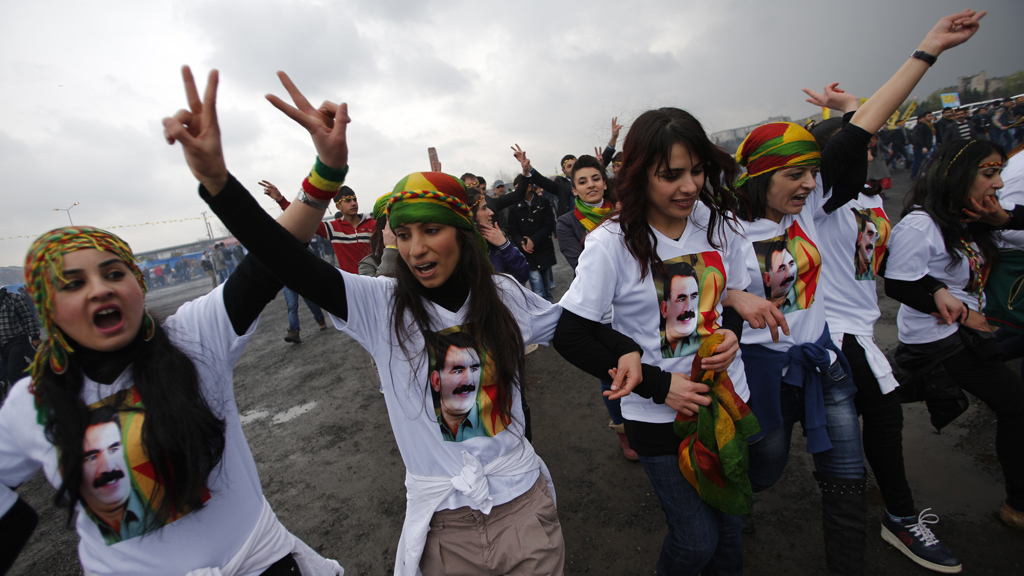Kurdish leader Ocalan calls ceasefire in Turkey conflict
Imprisoned leader of the Kurdish rebels in Turkey, Abdullah Ocalan, calls for a cease fire – bringing hopes of an end to a bloody 30-year conflict.
A quarter of a million of Ocalan’s supporters, waving flags emblazoned with his picture, packed a square in Diyarbakir, the largest city in Turkey’s Kurdish-dominated south, early on Thursday.
In a statement from Ocalan, read by Kurdish legislators, he said: “Let guns be silenced and politics dominate. The stage has been reached where our armed forces should withdraw beyond the borders … It’s not the end, it’s the start of a new era.”
Ocalan, leader of the Kurdistan Workers’ Party, or PKK, announced the immediate ceasefire in hostilities between the Kurds and the Turkish military and the withdrawal of 4,000 Kurdish fighters from Turkish territory.
The statement coincided with the spring festival of Newroz, the Kurdish celebration of the new year.
Kurdish rebels have declared ceasefires in the past, but these have been ignored by the Turkish government – which previously vowed to fight the PKK until the end. The Turkish government has also admitted to holding unsuccessful secret talks with the PKK in the past.

This time, however, there is more hope.
The negotiations for peace are being held out in the open. Turkey announced in December that it was talking with Ocalan with the aim of persuading the PKK to disarm.
Kurdish-Turkish conflict: the key questions
Who are the Kurds? Kurdish people make up an estimated 20 per cent of Turkey's 75 million population. The 38 million Kurdish people worldwide mostly occupy the region of Kurdistan, which includes parts of Turkey, Syria, Iran and Iraq.
Why are they fighting? In 1984 the PKK waged an armed conflict against the Turkish military, in order to create an independent Turkish state. According to the Turkish government, the party has been linked to extortion and drug trafficking, and as such has been listed as a terrorist organisation by Turkey and many of her Western allies.
Who is Abdullah Ocalan? Ocalan was one of the founders of the PKK in 1978. From the start of the conflict he was mostly based in Syria. However, in 1998 the Turkish government threatened Syria over its support for the PKK, and Ocalan was forced out of the country. He moved to various countries and was eventually captured in 1999.
As part of the peace efforts, the government is expected to boost the rights of Kurds through a series of reforms, including a more democratic constitution to underscore equal rights for Kurds and could increase the power of local authorities.
Kurds are also seeking the release of hundreds of Kurdish activists, jailed for alleged links to the PKK, as well as improved jail conditions for Ocalan who is serving a life prison term on an island near Istanbul.
Jon Snow blogs: Has Syria's horror spawned peace for Kurds in Turkey?
A key demand is guarantees that PKK fighters will not be attacked during any retreat. Turkish Prime Minister Recep Tayyip Erdogan has said he is open to the creation of an independent committee that could oversee the withdrawal of an estimated 4,000 rebel fighters, initially to northern Iraq.
Turkish forces reportedly attacked PKK guerrillas as they retreated in 1999 and in 2004, while obeying orders from Ocalan.
In January three Kurdish women, said to include one of the founding members of the PKK, were shot dead in Paris.




